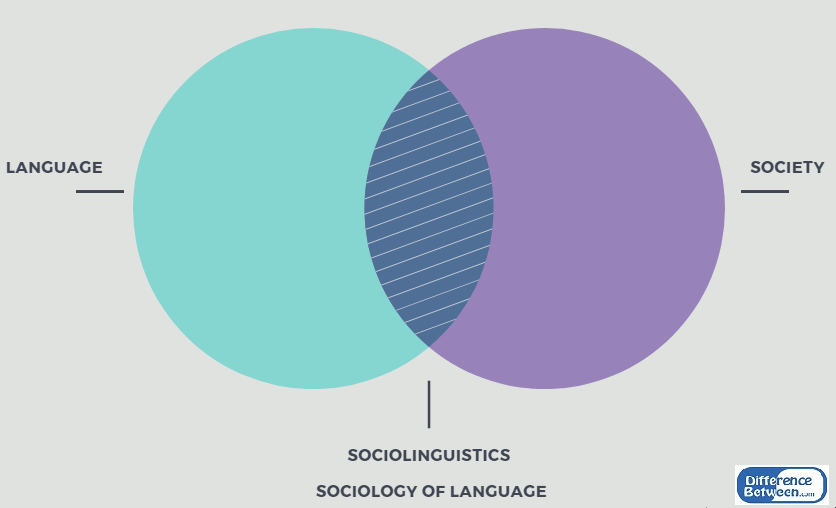The key difference between sociolinguistics and sociology of language is that the focus of sociolinguistics is language whereas the focus of sociology of language is society. Sociolinguistics and sociology of language are two closely related fields that study the interaction between society and language. However, these two fields are not the same. Sociolinguistics basically studies how social factors affect language whereas sociology of language studies the relationship between society and language. Thus, there is a distinctive difference between sociolinguistics and sociology of language.
Key Takeaways
- Sociolinguistics focuses on the study of language in relation to social factors.
- Sociology of language focuses on the study of the relationship between society and language.
- Both fields deal with the interaction between society and language, but with different emphases.
What is Sociolinguistics?
Sociolinguistics is the study of language in relation to social factors, including differences in region, class, occupational dialect and gender, and bilingualism. In other words, it studies how various social factors such as gender, ethnicity, age or social class affect language.
Language is variable and changing; thus, language is not homogeneous, neither for individual users nor among groups of speakers who use the same language. Sociolinguistics is based on the premise that language use symbolically represents fundamental aspects of social behavior and human interaction. Thus, sociolinguists study how people speak differently in various social contexts, and how people use specific functions of language to convey aspects of our identity and social meaning.
Sociolinguistics has various subfields and branches such as dialectology, discourse analysis, ethnography of speaking, geolinguistics, anthropological linguistics, language contact studies, secular linguistics, etc.
What is Sociology of Language?
Sociology of language is basically the study of the relationship between language and society. In other words, it studies society in relation to language; thus, society is the object of study in this field. This field studies the language of a particular community in order to discover and understand the use of the social structures and the way the people of that community use them to communicate properly. The idea that language can reflect (automatically or deliberately) attitudes of the speakers are at the base of the sociology of language. Sociologists are interested in the attitudes of these speakers.
It is also important to notice that there is a lot of overlap between both sociolinguistics. In fact, sociology of language is also known by the term ‘macro-sociolinguistics’.
What are the Similarities Between Sociolinguistics and Sociology of Language?
- Both fields deal with the interaction between society and language.
- The boundaries between these two fields are sometimes not clear.
What is the Difference Between Sociolinguistics and Sociology of Language?
Sociolinguistics is the study of language in relation to social factors, including differences in region, class, occupational dialect and gender, and bilingualism. Sociology of language, in contrast, is the study of the relations between language and society. Although both these fields study the interaction between language and society, sociolinguistics focuses on language while sociology of language focuses on society. In general, sociolinguistics looks at how social factors affect language whereas the sociology of language looks at the relationship between society and language.
Summary – Sociolinguistics vs Sociology of Language
Both sociolinguistics and sociology of language are closely-related fields that study the interaction between language and society. The basic difference between sociolinguistics and sociology of language is that sociolinguistics focuses on language while sociology of language focuses on society.
